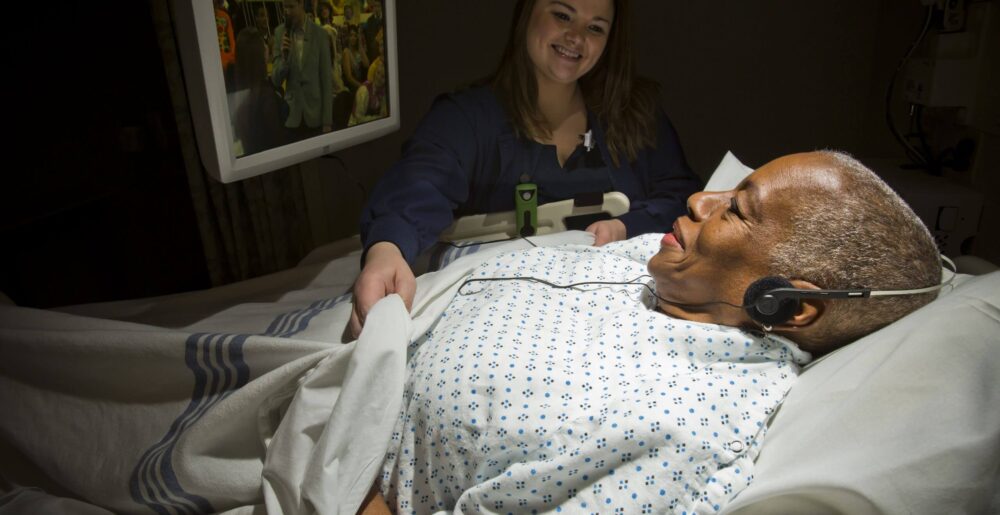Respite Care
We use a team approach to providing health care, and involve the patient as part of our team. Involvement by our staff in the community.

Respite Care
Respite care refers to short-term, temporary care services provided to individuals with illnesses, disabilities, or other conditions that require ongoing support, so that their primary caregivers can take a break. The goal of respite care is to give family members or other regular caregivers a chance to rest, recharge, and attend to their own needs, while ensuring that the person receiving care continues to receive appropriate support.
Key Features of Respite Care:
- Temporary Relief: Respite care is typically short-term, lasting anywhere from a few hours to several days or weeks, depending on the needs of the caregiver and the individual receiving care.
- Variety of Care Options: Respite care can be provided in different settings, including:
- Home Care: A caregiver or professional comes to the home to provide care for the individual while their regular caregiver is away.
- Out-of-Home Care: The person receiving care may temporarily stay in a facility like a daycare center, a nursing home, or a hospice facility.
- In-Home Respite for Family: For family caregivers, this might involve taking on household tasks, medical monitoring, or personal care for the person with the disability or illness.
Types of Respite Care:
- In-Home Respite Care:
- Care providers come to the home to offer support, which may include assistance with daily living activities like feeding, bathing, dressing, and medication management.
- Family caregivers can leave the home to rest or attend to personal matters, while the individual continues to receive familiar care.
- Out-of-Home Respite Care:
- This involves placing the individual in a facility (such as a respite care home, adult day care center, or specialized facility) for a short period. These settings provide care, supervision, and social activities during the caregiver’s absence.
- Residential Respite Care:
- Some people may need more specialized care or supervision, such as in a nursing home or hospice, for a few days or weeks to give the primary caregiver a break.
- Hospice Respite Care:
- For individuals in hospice care, temporary respite services are provided to allow family caregivers to rest while ensuring that the person receives end-of-life care and comfort.
Benefits of Respite Care:
Caregiver Well-being:
Respite care is essential for preventing burnout among primary caregivers. Constant caregiving can be emotionally and physically draining, and respite care allows caregivers to rest, reduce stress, and recover.Prevents Caregiver Burnout:
Without breaks, caregivers may become overwhelmed, which can negatively affect both their health and the quality of care provided to the person they are looking after. Respite care provides an opportunity to avoid exhaustion and maintain their own well-being.Improved Quality of Care:
By taking breaks, caregivers can return to their duties refreshed and better able to provide high-quality care to their loved ones.Social and Recreational Benefits for the Person Receiving Care:
Respite care allows the individual being cared for to experience new environments, social interactions, and activities, which can improve their emotional and social well-being.Support for Families:
Families can get the opportunity to spend time together without the pressures of caregiving responsibilities, which strengthens relationships and provides a sense of normalcy.Customized Care:
Respite care can be tailored to meet the specific needs of the individual receiving care, including physical, mental, emotional, or medical requirements.
When to Use Respite Care:
- Caregiver Needs a Break: When the primary caregiver needs time to address personal or professional matters, take a vacation, or simply rest.
- Recovery Periods: If a caregiver is sick, injured, or recovering from surgery, respite care ensures the individual in need of care is supported.
- Holiday or Special Occasions: When caregivers want to attend family gatherings, holidays, or events that require time away from caregiving responsibilities.
- Emergency Situations: In the event of an unexpected issue, such as illness or personal crisis, respite care ensures that the person receiving care is supported during a caregiver’s absence.
Delivering world class home care
Aim to deliver compassionate, personalized care that empowers individuals to live independently through a focus on compassion, safety, and respect, we strive to build lasting relationships with our clients and their families.

"Every night is an opportunity for care, ensuring comfort when it matters most."
Emergency? Contact Us


